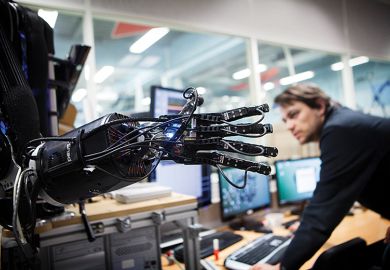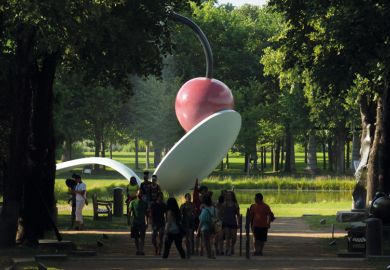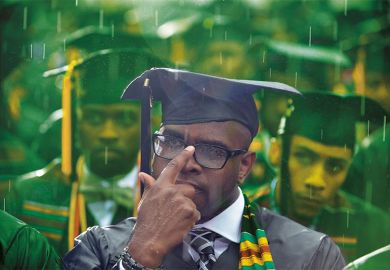The humanities will reclaim their pre-eminence in the academy as the rise of the machines puts paid to two centuries of utilitarian education, according to the political historian Kee Beng Ooi.
Dr Ooi said the Industrial Revolution had shifted education’s purpose away from personal growth and towards preparation for work. But that “somewhat 20th-century way of thinking” was no longer appropriate as a new industrial revolution rendered such preparation futile.
“We’ve reached a point where the machines can do most things better than us,” he said, citing microsurgery as an example. “You’re in trouble if you spend years and years becoming a microsurgeon, and your hands get a bit shaky. The machines – they just keep getting better.”
Instead of “trying to fight the machines”, he said, people should thank them. “Maybe they’re freeing humanity from this way of thinking that we’ve been stuck in for 200 years.”
A Sinologist, philosopher and biographer, Dr Ooi has worked at universities in Hong Kong, Singapore and Stockholm. He now runs the Penang Institute thinktank in his native Malaysia.
He said the humanities had dominated academia until perhaps the early 19th century. “Two hundred years ago, when you were educated, you were educated in the humanities. You had to know Latin, to know philosophy. Even in China, you were educated in humanities. You knew history. You knew how people act.”
That approach is now considered outdated, Dr Ooi said. “In the industrial age, the natural sciences became important for country management and economic progress. The humanities sort of got pushed out of the way.
“But [they] seem to be on the way back as the machines take over. The labour market is going to force that on us because there won’t be that many jobs.”
He said the “little signs” of a resurgence of the humanities and social sciences included the unaccountable recent popularity of psychology in Malaysia while private colleges struggled to fill engineering classes.
The Penang Institute has been contracted to survey students “about why they choose psychology instead of courses where the job opportunities are definitely better”, Dr Ooi said.
The development reflected an evolutionary step in countries that gained their independence in the post-war period and initially focused their education systems on achieving universal literacy – a “very low ambition” that was considered sufficient for employability.
With the advent of “Industry 4.0”, it was no longer possible to predict the direction of the employment market and consequently no longer possible to train for jobs with any certainty of gaining a position, Dr Ooi said. “The country needs to relook at it and ask the question: what is the point of literacy? Literacy is about cultivating the person – but we’ve forgotten that.”
He said philosophy in particular would come to the fore as the world wrestled with the Sustainable Development Goals – challenges that risked becoming a “rhetorical white elephant” without a value change.
“I’m afraid the SDGs will become a formalism,” Dr Ooi said. “It’s such an easy phrase; you can just parrot it. Students will parrot it, too. To embrace the spirit of the SDGs, they need to be versed in the humanities, to think of humans as a species, as a unit.
“The value change will have to come from our understanding of ourselves as humans. Philosophy will be important because we need to revisit the history of humanity – the limits of industrial thinking, and where we went wrong.”
Register to continue
Why register?
- Registration is free and only takes a moment
- Once registered, you can read 3 articles a month
- Sign up for our newsletter
Subscribe
Or subscribe for unlimited access to:
- Unlimited access to news, views, insights & reviews
- Digital editions
- Digital access to THE’s university and college rankings analysis
Already registered or a current subscriber?








